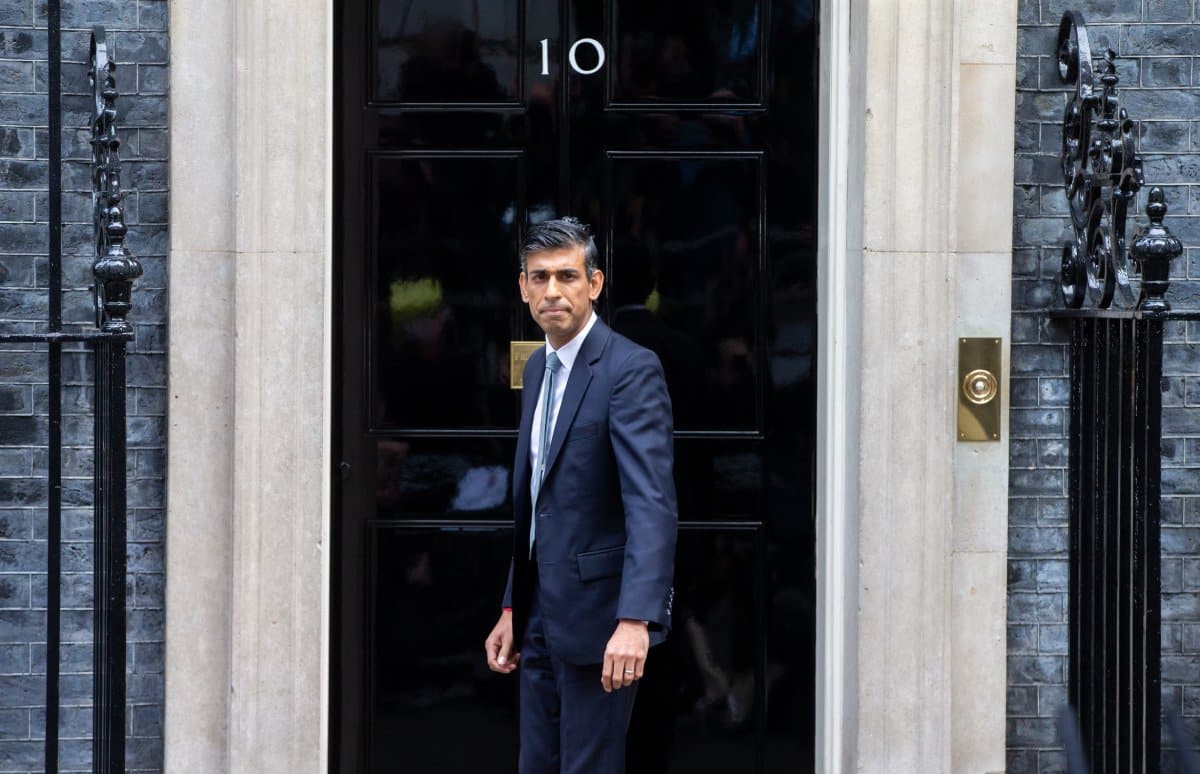Downing Street has refuted allegations of an anti-BBC agenda amidst accusations of bias against the organisation by senior Cabinet members. Here’s the full story.
Damned If You Do
Rishi Sunak has had another bad start to the week after Downing Street was forced to push back against persistent accusations of harbouring an anti-BBC agenda. These accusations follow on from Culture Secretary Lucy Frazer’s assertion that the corporation, a much-loved British institution, was allegedly biased in its reporting.
The government contends that its focus is not on tearing down the BBC, already straining under the weight of repeated cuts to its budget, but instead on ensuring the BBC’s continued success. However, this comes shortly after Rishi Sunak emphasised the importance of impartiality in the media landscape of the UK, particularly the BBC.
Downing Street firmly denied pursuing an agenda against the BBC, distancing itself from Frazer’s accusations of bias. Rishi Sunak did acknowledge that impartiality was a crucial aspect of the media but refrained from explicitly endorsing Frazer’s remarks.
The government spokesperson emphasised the government’s aim is “rightly about ensuring the BBC is able to continue to thrive long into the future.”
Who Watches the Watchers?
Despite the government’s assurances that they do not have knives out for the BBC, there have been several proposed changes to the governance of the broadcaster, and there has been discussion within government circles of expanding Ofcom’s powers to regulate and investigate the BBC.
It has also been suggested that the BBC’s board may gain oversight of the corporation’s internal complaints process. These changes have been proposed as part of an effort to enhance scrutiny and increase accountability within the BBC.
Culture Secretary Lucy Frazer raised concerns about perceived bias within the BBC in an interview with Times Radio, stressing that the corporation needed to adapt with the changing times in order to prevent losing the trust of the audience.
Frazer attempted to placate both sides of the argument, stating that the BBC was “a fantastic public institution.” However, they also added “It’s really important that it maintains the public’s trust. And what we’ve been hearing is that some audiences think it’s biassed.”
Is This Real Life or Is This Just Fantasy?
Frazer did appear to be tripped up by the Times Radio interviewer’s suggestion that perceptions do not always necessarily align with reality. When confronted with this, Frazer doubled down, stating “There are only perceptions and perceptions are important. What’s important about the BBC is that it’s funded by the public, so the perception of audiences, of the public, are important.”
In response to Sky News questioning her personal stance on BBC bias, Frazer asserted, “I think that on occasions it has been biassed.” Somewhat surprisingly however, she faced difficulty providing specific examples of the BBC’s apparent bias.
Not to be outdone, Labour Shadow Culture Secretary Thangam Debbonaire then criticised Frazer’s remarks on X, stating, “Just the latest in a long line of secretaries of state for culture wars.
Attacking and undermining one of our greatest institutions at every chance they get.” Debbonaire went on to emphasise the potential of the BBC to contribute to job creation, as well as public enjoyment, calling for government support rather than criticism.
Sunak’s Lines
During a purely coincidental visit to the National Film and Television School in Buckinghamshire, Prime Minister Rishi Sunak echoed the importance of impartiality rules applying uniformly across the media industry.
He went on to praise the BBC as a strong institution, emphasising the role of impartiality in preserving the integrity of media organisations, stating “We have a free and fair press and impartiality is at the heart of what makes the BBC a strong institution.”
Despite the words of support from the Prime Minister, Frazer also criticised the BBC’s use of “criminal tools” to prosecute individuals for non-payment of TV licence fees. As part of a funding review, she expressed intentions to scrutinise such prosecutions in the future.
Despite the BBC being the most trusted news network in the UK, Ofcom, the media regulator, has received a notable increase in complaints about BBC impartiality, with 918 grievances last year, constituting 39% of all complaints against the broadcaster.
This surge, up from 594 bias complaints the previous year, shows growing public concern, however small, regarding perceived partiality within the BBC.
Walking the Tightrope
The fractious debate surrounding alleged bias within the BBC continues to unfold, with the government seemingly trying to decide whether to support or decry the public broadcaster.
While Downing Street denies pursuing an anti-BBC agenda, their calls for increased scrutiny and adaptations to the corporation persist. As the media landscape changes, with more people getting their news online rather than from their television, the main challenge and concern for the BBC lies in maintaining its public trust and impartiality.
Whether the BBC can manage this complex juggling act without losing that which makes it a treasured UK institution remains to be seen.
The post Downing Street: No Anti-BBC Agenda Amid Bias Claims first appeared on Edge Media.
Featured Image Credit: Shutterstock / I T S.
Grant Gallacher is a seasoned writer with expertise in politics and impactful daily news. His work, deeply rooted in addressing issues that resonate with a wide audience, showcases an unwavering commitment to bringing forth the stories that matter. He is also known for satirical writing and stand up comedy.

